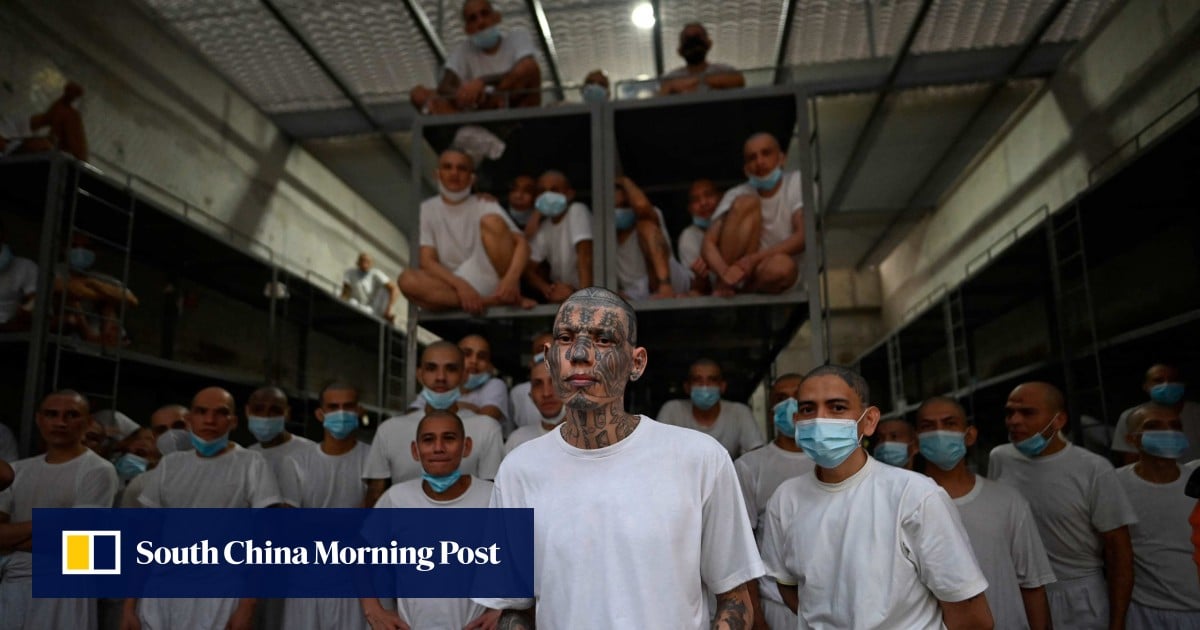The 40,000-person facility – thought to be the largest in the Americas – opened earlier this year
Up to 75 inmates live in each cell of about 1,000 square feet, sharing two toilets and sinks
Salvadoran President Nayib Bukele’s relentless war on gangs is steadily filling the cellblocks of a massive prison that may be Latin America’s largest.
At the complex in Tecoluca, southeast of the capital San Salvador, dozens of inmates with shaved heads peer out of a single cellblock.
Standing out among the omnipresent white T-shirts and shorts are some heads and necks covered in dark tattoos.
Agence France-Presse joined government human rights officials this week in a rare tour of the prison, formally known as the Terrorism Confinement Centre, almost exactly six months after its inauguration on February 24
The massive prison has a capacity for 40,000 inmates, but now holds 12,114 accused gang members.
“We are persevering here day by day, trying to change with the help of our God,” Jose Hurquilla Bonilla, a member of the Barrio 18 gang, said from inside a cell.
Humanitarian organisations have questioned the treatment of alleged gang members. The UN denounced that among the tens of thousands of detainees across the nation’s prisons there are at least 1,600 minors.
The prison was built to hold some of the more than 72,000 alleged gang members detained under an emergency regime decreed in March 2022 by Congress at Bukele’s request, in response to an escalation of violence that claimed the lives of 87 people in just three days.
Authorities accuse nearly all of the Tecoluca prisoners of belonging to the violent rival Mara Salvatrucha (MS-13) and Barrio 18 gangs with origins in the streets of Southern California four decades ago.
“When you are a child, anyone lies to you and sweetens you up, you fall into a mistake, and when you grow up … you realise it,” says Nelson Velasquez, a 37-year-old prisoner who has “MS-13” tattooed on his head.
Velasquez spoke during a visit to the facility by El Salvador’s Human Rights Ombudsman, Raquel Caballero, and the country’s human rights commissioner, Colombian national Andres Guzman.



The answer is yes. Are governments doing what they should to actually rehabilitate convicted criminals of any kind? Absolutely not.